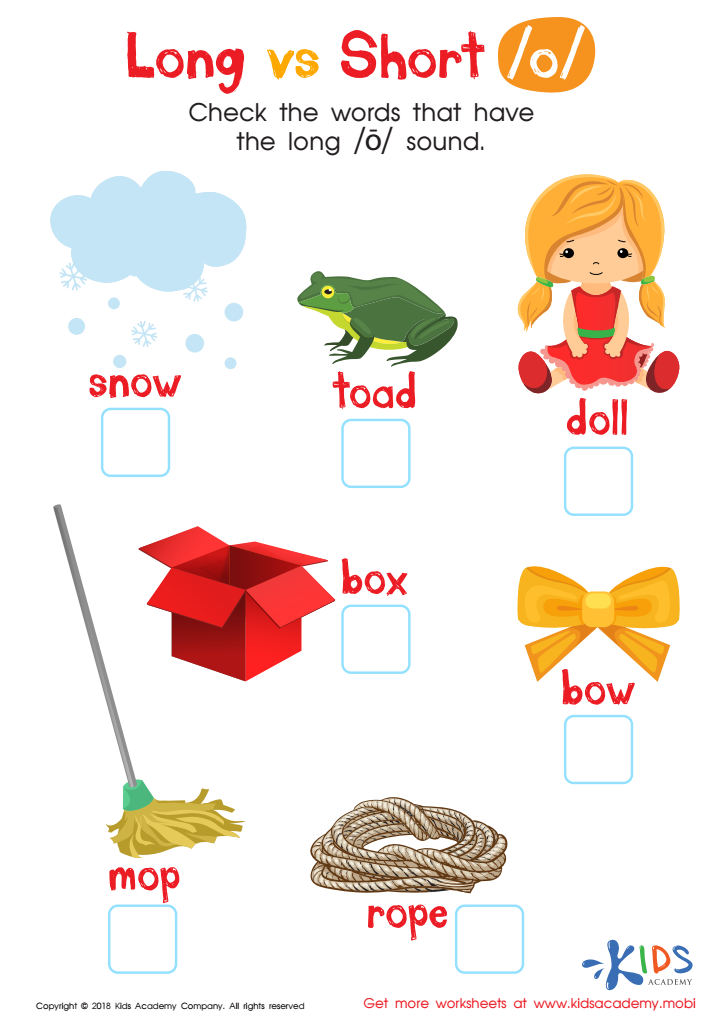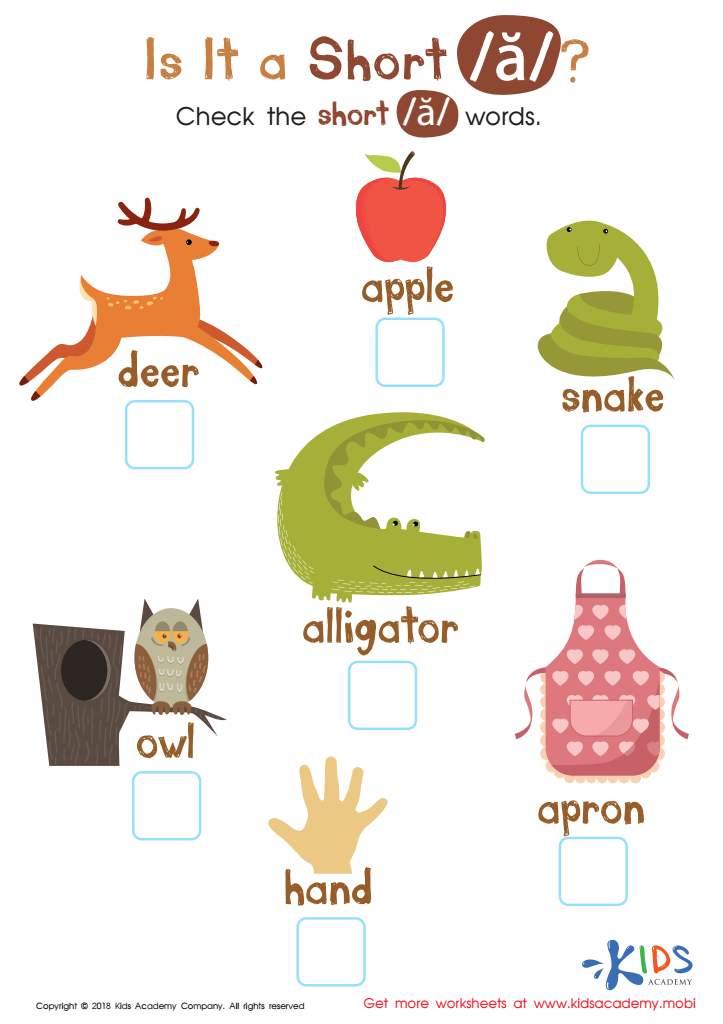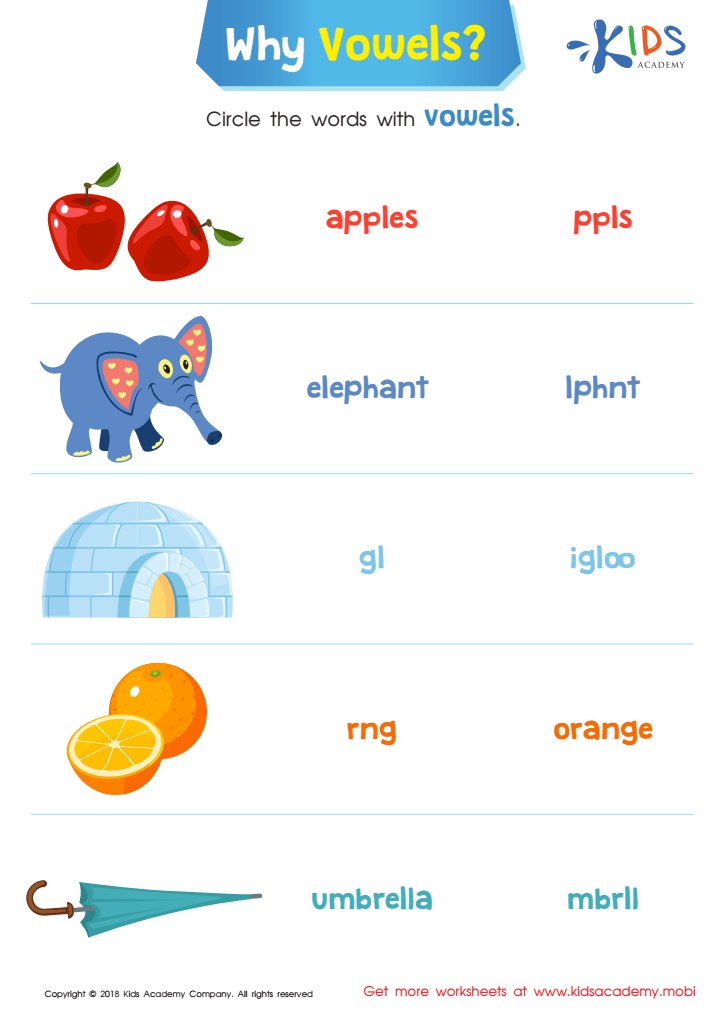Vocabulary development Vowels Worksheets for 4-Year-Olds
4 filtered results
-
From - To
Enhance your 4-year-old's vocabulary with our engaging Vowel Worksheets! These specially designed activities make learning vowels fun and interactive, helping kids recognize, pronounce, and use vowels in words. Through colorful illustrations and playful exercises, children will build a strong vocabulary foundation, essential for early reading skills. Boost confidence and language development with activities tailored to young learners, ensuring they grasp vowel sounds and their importance. Start your child's educational journey with our expertly crafted worksheets that make mastering vowels enjoyable and effective, setting the stage for lifelong learning. Experience the joy of learning with our Vocabulary Development Vowel Worksheets!


Long vs Short O Reading Worksheet


Vowel and Consonant Sounds: Assessment Worksheet


Is It Short A? Reading Worksheet


Why Vowels? Reading Worksheet
Vocabulary development is a cornerstone of early childhood education, and understanding vowels is a vital part of this process. At age four, children are in a critical stage of linguistic development where they rapidly acquire language skills. Introducing vowels early can significantly enhance their overall language proficiency.
Vowels are fundamental in forming the basic structure of words. They act as the vocal nucleus in syllables, making comprehension and articulation easier. When children grasp the concept of vowels, they can more effectively decode words, boosting their reading and writing abilities. This early foundation aids in phonemic awareness, an essential pre-reading skill that allows children to recognize and manipulate the sounds in spoken words.
A robust vocabulary at this age puts children at a substantial advantage as they enter formal schooling. It supports not only literacy but also communication skills, comprehension, and academic performance across subjects. Parents and teachers should prioritize vowel learning through engaging activities like songs, stories, and interactive games. By investing in children’s understanding of vowels and vocabulary, adults are setting the stage for their future success in education and beyond. This early attentiveness helps foster a life-long love for reading and learning, empowering children with the skills necessary for effective communication and critical thinking.

 Assign to My Students
Assign to My Students

















